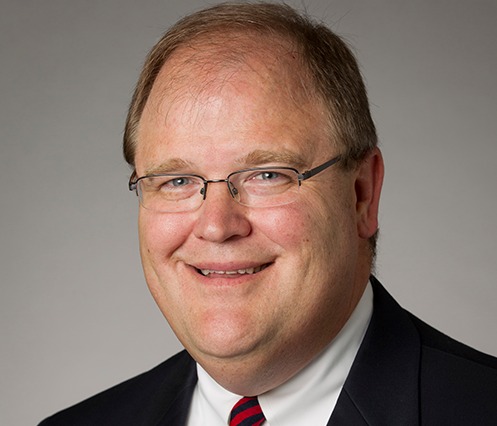With a new administration already making large scale changes to energy legislation—not to mention pulling out of the Paris climate agreement—what should future energy and environmental lawyers look out for in the coming years? We sat down with Bret Wells, George Butler Research Professor and Associate Professor of Law at the University of Houston Law Center, to understand recent developments in the US energy landscape and what LL.M. students should expect going into a career in the space.
The Trump administration is already rolling back Obama-era climate policies, making major policy shifts such as pulling out of the Paris agreement. How will this affect energy and environmental lawyers going forward?

The US withdrawal from the Paris Agreement creates additional need for education about the intersection of environmental and energy law between national jurisdictions. Not only will students need to understand the global climate change framework, and the US’ relation to it, but energy lawyers will need to understand how this framework will impact the relations between countries, particularly those that trade energy internationally. The withdrawal from the Paris Agreement makes this interrelationship more complex. For energy lawyers in the United States, it will spur a renewed surge of federal and state lawsuits, expanded state and local legislative efforts, and a stronger need for legal services on how energy sources and industrial operators can comply with shifting and conflicting federal and state mandates.
I think there is going to be a lot of noise over the coming years, but I think that the dominant political belief in the US and around the world is that we value environmentally-sensitive production of hydrocarbons. And legislation that will limit the collateral damage of that will be the most effective. That’s where the broad public consensus is today. The concern for scholars and others is what environmental regulation is needed, and how the industry can achieve their objectives within that scope.
Are there changes at University of Houston’s Energy, Environment and Natural Resources Law LL.M. curriculum that reflect these dynamics?
One of the forums we’ve been expanding is the international regulator conference here. Government representatives throughout the Americas come here and have a dialogue—and these are the kinds of conversations we’re going to have regardless of what the Trump administration does.
We’ve also added new courses like transnational law, as cross-border investments in every sector increase. Another new one is an environmental law practicum course that brings in guest lecturers for whole semesters. Last year we brought in leaders from the EPA and other state regulators. We had dialogues on current topics in environmental law, regulation, and contamination issues. That practicum had in depth discussions about the Macondo [Deepwater Horizon] well explosion, as well as current year carbon dioxide emissions. Another new course is diplomacy and geopolitics of oil and gas, which covers the history and balance of powers of oil and gas during the twentieth and twenty-first centuries.
We really have been trying hard to address the legitimate interests of the energy industry, regulators, and the environmental constituents, to have a curriculum that balances all of those competing policy interests.
How much emphasis do you put on the environmental curriculum vs. the energy side?
We put environment first in our title; I think the old world of tradeoffs is not the way we need to be educating future leaders. The world wants clean, safe energy, but we have to mitigate the environmental disadvantage. What we say to our industry folks is that you’re not going to have a sustainable business if it’s not environmentally conscious. Those [LL.M.] programs saying “drill, baby, drill” aren’t going to be the voices of the industry or responsible stakeholders in the sector. Most business leaders wants programs that are going to be forward-thinking about how businesses need to be geared for future, not advocates for one political side or other. What we’re trying to get our students to think about, and what policy makers are pushing the envelope on, is ‘how do we meet energy demands of growing world, yet in a way that also meets the goals of environmental security and justice?’
How have you seen the Energy Law LL.M. landscape evolving over the past decade?
There’s been a large growth in the environmental space; I think there are some programs that are just oil specific, and cropping up to offer environmental specializations. We’re not the only ones, but we’re one of the few marrying an Energy LL.M. with environmental law, which is actually quite difficult for a program to do. Aberdeen and Calgary have nice advantages in that regard. I think there is an understanding in environmental law programs that they need a better understanding of energy courses in order to be thoughtful, and to balance out in the [environmental] law area. They need to understand the industry they’re attempting to regulate.
There was definitely a boom in applicants when oil prices were high; during the ten years around 2000 to 2013 we saw an increase in students moving to study international oil and gas. There’s no doubt that when oil prices were at $100, the number of students coming from international places was higher. The peak would’ve been for us in 2015.
What advice would you give prospective LL.M. students before choosing a program and launching a career in energy law?
You’re going to grow and learn and understand things in a very different way than when you come in. But it would be helpful to have a clear idea of, ‘what am I wanting from my career, what am I passionate about?’ You’re going to make enough money to make it through life. What would you like to do? Not just what you’re good at. Map out your thinking in terms of picking courses and the contacts that are going to get you down that path. Don’t just go into a program and be passive. Think about what you can do as you’re dealing with these professors, industry participants, government officials, and people who are interested in developing the next generation of leaders in this space. But hold that loosely; you may get passionate about a course you never expected, or had exposure to, but it’s important to not just live the experience, and not have a clear sense of what your job will look like when you get out, and knowing how the LL.M. could help you get there.










